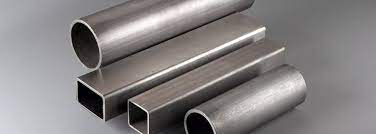Inconel 601 pipes are the go-to option for high-temperature applications due to their excellent oxidation resistance properties. They are widely used in the chemical, petrochemical, and power generation industries. If you are looking to invest in Inconel 601 Pipes but have no idea what they are, how they are made, or their application, keep reading. This article will provide you with everything you need to know about Inconel 601 pipes.
What is Inconel 601?
Inconel 601 is a nickel-chromium alloy that contains iron, aluminum, and titanium. Its name is derived from the two elements that make up the alloy – “In” for “Nickel” and “Conel” for “Chromium.” Inconel 601 is resistant to high-temperature oxidation and corrosion, making it an ideal choice for high-stress applications. It is often used for heating elements, gas turbine components, and petrochemical processing equipment.
How are Inconel 601 pipes made?
Inconel 601 pipes are typically made using a hot-rolling process. The alloy is first heated to its rolling temperature, and then it is passed through a series of rollers to achieve its desired shape and thickness. The hot-rolling process ensures that the Inconel 601 pipes are free of defects, and have a uniform microstructure. Additionally, this process enhances the mechanical properties of the alloy, including its strength, ductility, and toughness.
What are the applications of Inconel 601 pipes?
Inconel 601 pipes have numerous applications in the chemical, petrochemical, and power generation industries. They are often used in high-temperature environments where other alloys would fail. Specifically, Inconel 601 pipes are used in:
Furnace components: due to their oxidation resistance properties, Inconel 601 pipes are widely used in the construction of heat exchangers, radiant tubes, and refractory anchors.
Chemical processing: Inconel 601 pipes are used in the production of various chemicals, including sulfuric acid, nitric acid, and hydrochloric acid.
Electric heating: Inconel 601 pipes are used in the manufacture of heating elements, such as in electric furnaces and hotplates. They are preferred because they can withstand high temperatures, and they maintain their mechanical properties even under thermal stress.
What are the benefits of Inconel 601 pipes?
Inconel 601 pipes are known for their exceptional resistance to high-temperature oxidation and corrosion, which makes them an ideal choice for extreme environments.
Additionally, they have a high melting point, which allows them to maintain their structural integrity at high temperatures. Other benefits of Inconel 601 pipes include their excellent mechanical properties, good weldability, and ease of manufacturing.
Conclusion:
Inconel 601 pipes are durable, strong, and offer excellent resistance against oxidation and corrosion, making them ideal for high-temperature and high-stress environments. They are manufactured through a hot-rolling process that ensures they are of high quality and free of defects.
Additionally, Inconel 601 pipes have numerous applications in the chemical, petrochemical, and power generation industries. Furthermore, they offer significant benefits such as excellent mechanical properties, good weldability, and ease of manufacturing. If you're in the market for pipes, Inconel 601 pipes are the way to go.






